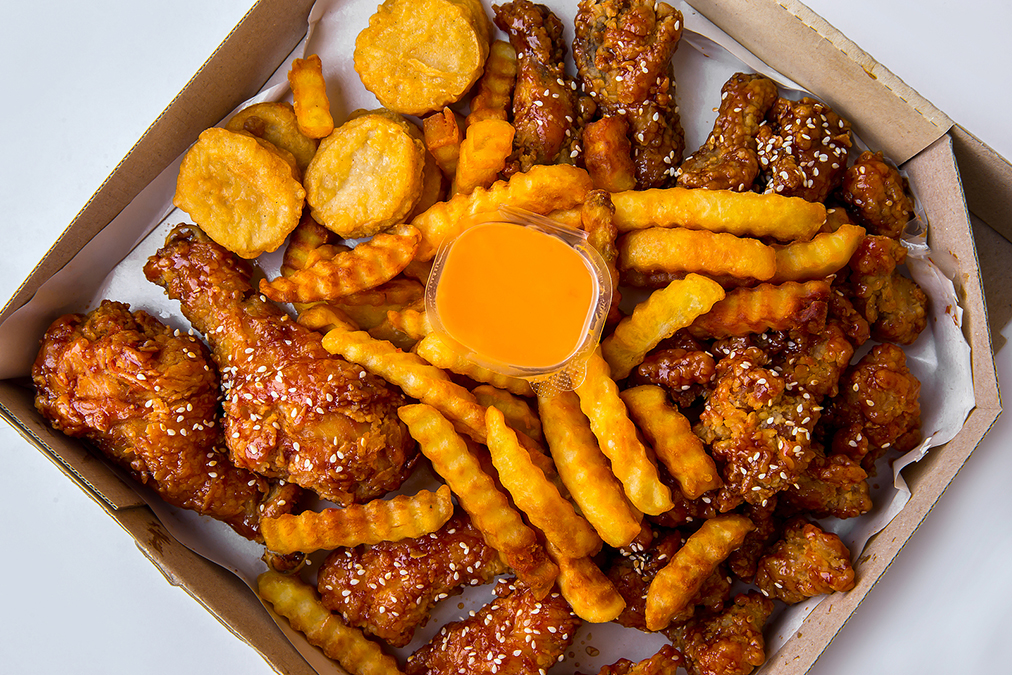 The food we eat is important for health, but often the way we prepare food can be equally important.
The food we eat is important for health, but often the way we prepare food can be equally important.
The Saudi Journal of Biological Sciences just published a study comparing how different cooking methods affect non-alcoholic fatty liver disease.
The authors of the new study deliberately put a group of rats at risk of NAFLD by feeding them a high-cholesterol diet.
They fed another group of rats a normal diet.
In addition to these diets, they gave them a daily dose of boiled, fried, or grilled shrimp powder to see what effect it had on their cholesterol levels and their development of NAFLD.
Shrimp was an interesting choice, as it contains 80 percent more cholesterol than most other seafoods do. As such, many people believe that it is not as healthy as fish types with lots of omega-3, like mackerel, tuna, salmon, anchovies, herring, and so forth.
This belief is not backed up by research at all, as all studies that have examined the effects of shrimp on cholesterol have found that it reduces bad cholesterol and increases good cholesterol.
Consequently, feeding rats that are already on a high cholesterol diet a type of fish that is meant to reduce bad cholesterol is a good way to compare preparation methods.
In the first part of the study, they compared the effects of the preparation methods on the fat composition of the shrimp meat itself.
Interestingly, only frying in sunflower oil reduced the amount of saturated fats and cholesterol in the shrimp meat. It also increased omega-6 fat and reduced omega-3 fat. The latter two changes almost certainly make the meat unhealthier than it would otherwise have been, while the reduction in saturated fat is probably a good thing.
When they examined the rats after having fed them one of the three types of shrimp, they found that the grilled and boiled shrimp were substantially healthier, even though they contained more cholesterol than the fried shrimp.
Most importantly, they reduced bad cholesterol and fat in the blood and reduced the amount of fat and cholesterol that accumulated in the liver of the rats. Those who ate the shrimp fried in sunflower oil did not experience these benefits.
The boiled and grilled shrimp also improved their glucose and insulin tolerance, lowered their fasting glucose scores, and helped them lose some weight, compared to the rats who ate the fried shrimp.
Therefore, this study serves as another reminder that frying food that is supposed to be healthy can ruin its health properties and that boiling, grilling, and probably steaming, too, are healthier preparation methods.

 Overcoming IBD
Overcoming IBD Multiple Sclerosis
Multiple Sclerosis Banishing Bronchitis
Banishing Bronchitis Gum Disease Gone
Gum Disease Gone Overcoming Onychomycosis
Overcoming Onychomycosis Neuropathy No More
Neuropathy No More The Prostate Protocol
The Prostate Protocol Brain Booster
Brain Booster
 Ironbound
Ironbound
 Solution for Shingles
Solution for Shingles
 The Bone Density Solution
The Bone Density Solution
 The Ultimate Healing Protocol
The Ultimate Healing Protocol
 The Parkinson's Protocol
The Parkinson's Protocol
 The Chronic Kidney Disease Solution
The Chronic Kidney Disease Solution
 Overthrowing Anxiety
Overthrowing Anxiety The Fatty Liver Solution
The Fatty Liver Solution The Hypothyroidism Solution
The Hypothyroidism Solution
 The End of Gout
The End of Gout The Blood Pressure Program
The Blood Pressure Program
 The Oxigized Cholesterol Strategy
The Oxigized Cholesterol Strategy
 Stop Snoring And Sleep Apnea Program
Stop Snoring And Sleep Apnea Program
 The Arthritis Strategy
The Arthritis Strategy The Vertigo & Dizziness Program
The Vertigo & Dizziness Program The 3-Step Diabetes Strategy
The 3-Step Diabetes Strategy Hemorrhoids Healing Protocol
Hemorrhoids Healing Protocol The Erectile Dysfunction Master
The Erectile Dysfunction Master Weight Loss Breeze
Weight Loss Breeze The IBS Program
The IBS Program The Insomnia Program
The Insomnia Program The Migraine and Headache Program
The Migraine and Headache Program The Neck Pain Solution
The Neck Pain Solution The Menopause Solution
The Menopause Solution The Ejaculation Master
The Ejaculation Master The TMJ Solution
The TMJ Solution The Acid Reflux Solution
The Acid Reflux Solution The Fibromyalgia Solution
The Fibromyalgia Solution The Psoriasis Strategy
The Psoriasis Strategy